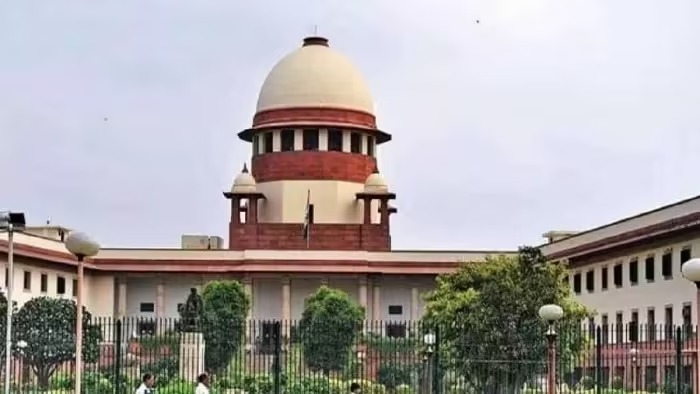
New Delhi: The Supreme Court on Wednesday reprimanded the Uttar Pradesh government for its arbitrary attitude of demolishing illegal constructions for road widening. The court said that you cannot demolish houses overnight with a bulldozer. Proper procedure should be followed for action.
Expressing displeasure over the illegal demolition, the court has ordered the Uttar Pradesh government to pay an interim compensation of Rs 25 lakh. This order was given by a bench of Chief Justice DY Chandrachud, JB Pardiwala and Manoj Mishra in a suo motu hearing on a complaint sent by Manoj Tibrewal Akash from Maharajganj, Uttar Pradesh.
What argument did the authority give?
Tibrewal's house was demolished in 2019 to widen the road in Maharajganj. The officials believed that it was encroachment. The court raised questions on the demolition action and said, the authority says that there was illegal construction of 3.7 square meters in the house. Even if the court accepts this, why was the prescribed procedure not followed? Why was no notice given first? How can such arbitrary action be taken? How can people's houses be demolished? Entering someone's house and demolishing it without notice is anarchy.
Expressing serious dissatisfaction over the action of the officials, the court said that according to the affidavit before the court, no notice was given before the action. You only went to the site and informed the people by making an announcement.
Due process must be followed: Court
The court was told that there were 123 other similar constructions there. Justice Pardiwala remarked that this is very arbitrary. You cannot take a bulldozer and demolish the house overnight. You do not give time to the family to vacate the house. What about the household goods. Proper procedure should be followed. You cannot just beat drums and make an announcement and ask people to vacate the house and demolish it. Proper notice should be given.
The court relied on the investigation report conducted by the National Human Rights Commission in the case which stated that there was encroachment of a maximum of 3.7 square metres and there was no justification for demolishing the entire house. The court asked why a portion larger than the alleged encroachment was demolished.
The petitioner alleged that the demolition was carried out because of a report published in a local newspaper about the wrongdoings of the officials. However, the court did not comment on these allegations. The court directed the Uttar Pradesh government to pay Rs 25 lakh compensation to the petitioner. This compensation is of interim nature and will not come in the way of other legal action taken by the petitioner for compensation.
The Supreme Court has directed the Chief Secretary of the state to investigate and take disciplinary action against the guilty officers and the contractor.
Process set for road widening
Apart from this, the court has also laid down the procedure to be followed before removing encroachment for road widening projects. The court has asked all the states to follow this in which the existing width of the road will be considered for road widening. If there is encroachment, a notice will be given to remove it.
If objection is raised on the notice, it will be heard and an order will be passed. If the objection is rejected, the encroacher will be given a reasonable time to remove the encroachment. The court has directed to send a copy of the order to all the states.
--Advertisement--

 Priya
Priya Share
Share



